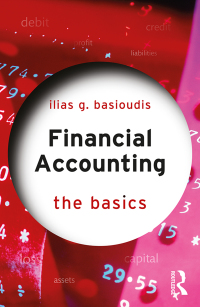. . Mt. Abbott takes three sepse He decides (though can computers ever be wrong!) to first determine the doring book inventory from the given figures Having done that, be adjust the physical count to the book inventory to determine the shortage percentage Having satisfied himself as to the accuracy of the shortage percentage.be attempts to determine the possible cause If you were the buyer, what causes would you investigate more thoroughly in order to decrease shortages, and why! What effect, if any, would the large shortage percentage of Store 09 have on the overall department not prett . CASE STUDY 2 CONTROLLING SHORTAGES Gary Abbott, the buyer for The Gift Shop,received the shortage report at the end of the Fall season. This report revealed that the overall department hortage for this delighted to notice this decine in shortage, small as it was. As he analyzed there of the individual stores, he found that Store 01 had a shortage of 1.2% while Store 9 had a 5.0% shortage Because the store uses a bar code scanning system to take inventory, the accuracy of the amount of Inventory taken is ensured. However, Mr Abbott reviews the figures for each store before trying to determine the causes of the vast shortage differences He refers to the following data Store 01 Store 09 Cost Retail MUN Cost Retail MUS Opening inventory $450,000 52% $100,000 52 Purchases $142,500 $300,000 $71,250 $150,000 (including freight) Reductions $7.000 $4.000 $375,000 $150,000 Shortage SW Store I had a physical inventory figure of 536),500, and Store 09's physical count $288.500. Other differences between these two stores are 1 Store 01 is one of the oldest cisting branches of the chain, while Store 09 is the newest branch, having been opened one year ago 2. Store 01 is located in a high income area, while Store 09 is in a medium income-bracket location 3. Store 01 is one of the most profitable units of the chain, and because of it high productivity, it enjoys a commensurate sales force. 4 Since 09 is so young, it has been staffed with a minimum permanent sales organization supplemented by part-time employees 1 CASE STUDY 2 CONTROLLING SHORTAGES Gary Abbott, the buyer for The Gift Shop, received the shortage report at the end of the Fall season. This report revealed that the overall department shortage for this six-month period was 1.3%, or 0.2% less than the previous season. Mr. Abbott was delighted to notice this decline in shortage, small as it was. As he analyzed the results of the individual stores, he found that Store 01 had a shortage of 1.2% while Store 09 had a 5.0% shortage Because the store uses a bar code scanning system to take inventory, the accuracy of the amount of inventory taken is ensured. However, Mr. Abbott reviews the figures for each store before trying to determine the causes of the vast shortage differences He refers to the following data: Store 01 Store 09 Cost Retail MU % Cost Retail Opening inventory $450,000 52% $300,000 Purchases $142,500 $300,000 $71,250 $150,000 (including freight) Reductions $7,000 $4,000 Sales $375,000 $150,000 Shortage 1.2% 5% MUS 525 Store 01 had a physical inventory figure of $363,500, and Store 09's physical count was $288,500. Other differences between these two stores are: 1. Store 01 is one of the oldest existing branches of the chain, while Store 09 is the newest branch, having been opened one year ago 2. Store 01 is located in a high-income area, while Store 09 is in a medium- income-bracket location. 3. Store 01 is one of the most profitable units of the chain, and because of its high productivity, it enjoys a commensurate sales force. Since 09 is so young, it has been staffed with a minimum permanent sales organization supplemented by part-time employees. 4 Mr. Abbott takes three steps: He decides (though can computers ever be wrong?) to first determine the closing book inventory from the given figures. Having done that, he adjusts the physical count to the book inventory to determine the shortage percentage. Having satisfied himself as to the accuracy of the shortage percentage, he attempts to determine the possible causes. If you were the buyer, what causes would you investigate more thoroughly in order to decrease shortages, and why? What effect, if any, would the large shortage percentage of Store 09 have on the overall department net profit









